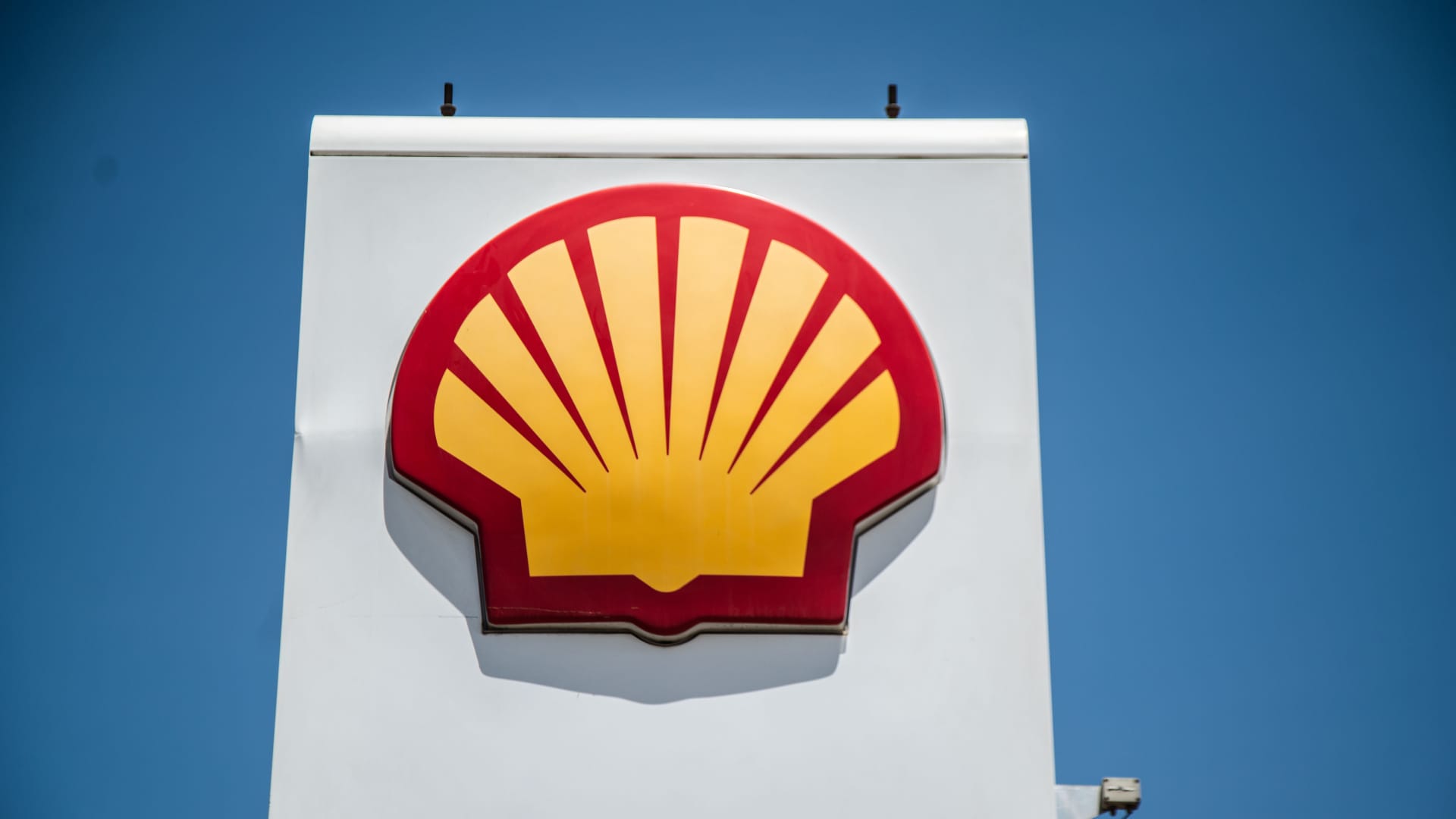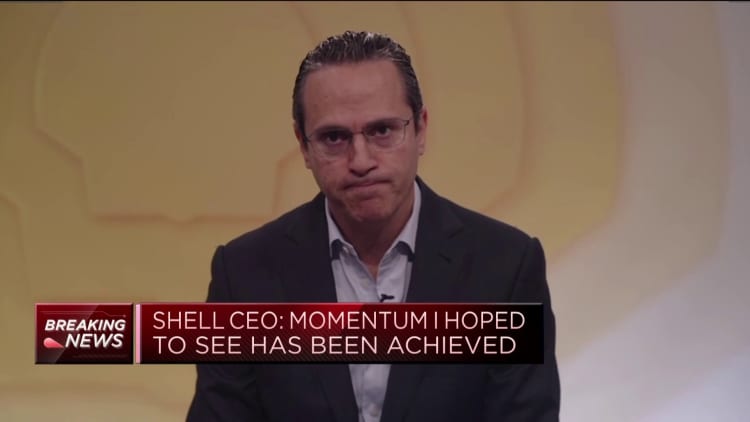Oil giant Shell waters down its near-term emission cuts in strategy update


A Shell logo displayed on a sign at a gas station in Nakuru, Kenya.
Sopa Images | Lightrocket | Getty Images
British oil giant Shell on Thursday announced plans to moderate its near-term carbon emissions cuts, while maintaining its pledge to become a net-zero company by the middle of the century.
In its latest energy transition strategy update, the oil and gas major said it is now aiming to reduce its net carbon intensity on the third-party use of products it sells by 15% to 20% by 2030, compared with a previous target of 20%.
Shell said it had also dropped its goal of a 45% reduction by 2035, citing “uncertainty in the pace of change in the energy transition.” The net carbon intensity targets are measured against a baseline of emissions in 2016.
“Our focus on value has led to a strategic shift in our power business towards select markets and segments,” Shell CEO Wael Sawan said in a statement. “As a result, we expect lower growth in sales of power overall. We have updated our net carbon intensity target to reflect that change.”
Shell said that by the end of 2023, it had achieved over 60% of its target to halve emissions from its operations by 2030, compared with 2016.
The company also said it achieved its target to reduce the net carbon intensity of the energy products sold last year, with a 6.3% reduction compared to 2016. Shell said this marked the third straight year it had hit its target.
Shell set a new target to reduce customer emissions from the use of its products by 15% to 20% by the end of the decade, compared with 2021.
Shell’s update comes as European energy majors continue to tweak their plans in the transition to clean-energy technologies. Last year, British rival BP said it was targeting a 20% to 30% emissions cut by the end of the decade, compared to a previous commitment to a 35% to 40% trim.
BP, which is also planning to become a net-zero company by 2050, said at the time that it needed to keep investing in oil and gas to meet global demand.
Activist investors have put pressure on fossil fuel companies to do more to align their emission reduction targets with the landmark 2015 Paris Agreement, while some have urged firms to scale back on green pledges and instead lean into their core oil and gas businesses.
The burning of fossil fuels, such as coal, oil and gas, is the chief driver of the climate crisis.
“With this backtrack, Shell bets on the failure of the Paris Climate Agreement which requires almost halving emissions this decade,” said Mark van Baal, founder of activist shareholder group Follow This.
“This backtracking removes any doubt about Shell’s intentions: the company wants to stay in fossil fuels as long as possible,” van Baal said.
“The board not only endangers the global economy by exacerbating the climate crisis, but also puts the company’s future at risk through policy interventions, disruptive innovation, stranded assets, and accountability for the costs of climate change.”
Chief executives of some of the world’s largest energy companies have repeatedly sought to fend off criticism, claiming that Big Oil is not to blame for the climate crisis and saying it isn’t possible to keep everyone happy in the energy transition.
Shell on Thursday reaffirmed its target to become a net-zero company by 2050, a pledge it first made in 2020 under previous CEO Ben van Beurden. The company said it planned to spend $10 billion to $15 billion on unspecified low-carbon solutions between 2023 and 2025.
Shares of Shell were 0.2% higher on Thursday afternoon. The London-listed stock price is around 1.3% lower year-to-date.